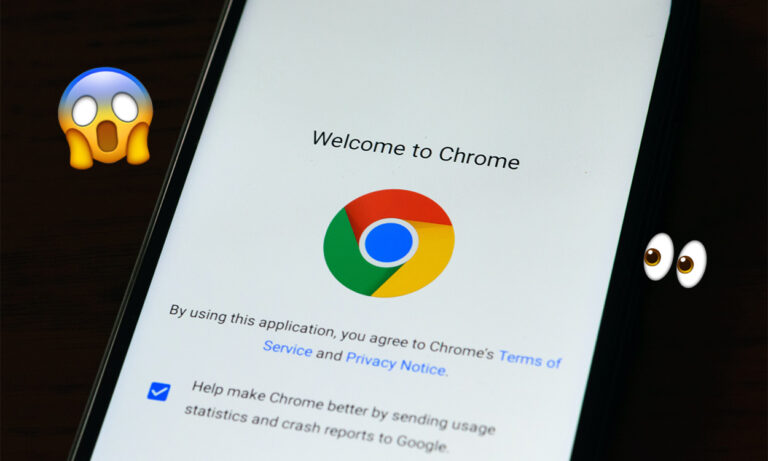Google Chrome just rolled out a new way to track you and serve ads. Here’s how you can disable it

This summer, Google began rolling out a brand new method of ad tracking on its popular web browser, Google Chrome. Called Topics API, the update “allows a browser to share information with third parties about a user’s interests while preserving privacy.” What the Big Tech company seems to have omitted from its pop-up message about the update (which is rolling out gradually as we speak), is the fact that it went ahead and enabled it for oblivious US users—and buried the option to remove it deep within Chrome’s settings.
What is Google’s Topics API?
As a component of Google’s innovative Privacy Sandbox, the API aims to replace the third-party cookies that have been following netizens around for many years now, reporting where we go online, and what we purchase, among other info.
Topics was included in July’s Chrome 115 release, which means that if you don’t have it implemented yet, you will very soon. But before we tell you exactly how you can disable it, it’s important that we first explain why Google’s rolling out this new feature.
As stated by Forbes, “like Facebook, Google’s business model is based on advertising, and the firm had to find a way of pleasing its customers—advertisers—while meeting growing user demand.” In its first attempt, it introduced FLoC in Chrome, which users and the industry alike hated.
In response to this, Google introduced Topics, which it argues is better than FLoC and allows it to target ads while preserving privacy. Long story short, Topics uses an individual’s browsing history to assign topics of interest to them. Websites can then ask Chrome via its Topics API what a person’s interests are so they can be served specific ads.
While some of these topics are broad, others are quite specific. Topic labels are predefined and include categories like arts and entertainment, or shopping and sports. Later, a site that you visit can ask Chrome for a few of your topics—not your whole browsing history—to personalise the ads that are served to you online.
Chrome is currently rolling out this new feature so that companies have time to integrate them ahead of its planned removal of third-party cookies in 2024.
What are the privacy concerns surrounding Topics API?
Despite Google’s claims that Topics improves privacy, many privacy advocates suggest it still comes with a myriad of risks. Chrome competitor Brave wrote last year that FLoC, Privacy Sandbox and the Topics API are “proposals to make the least private browser slightly less bad.”
loads chrome.....
— mRr3b00t (@UK_Daniel_Card) September 6, 2023
"Turn on ad privacy feature"
so does this feature improve my privacy?
"Ad topics help sites show you relevant ads while protecting your browsing history and identity. Chrome can note topics of interest based on your recent browsing history."
this does not… pic.twitter.com/ohaojtkvdU
Instead of multiple companies having access to a user’s data, Google will now be the sole custodian of it, and it’s likely that it will earn some money out of it via its advertising service.
“It would be [okay] if they were upfront about it,” security researcher Sean Wright told Forbes, adding: “Instead they appear to be touting this as a means to protect a user’s privacy when it is anything but. We have to remember this is the same company that had personalised adverts on by default in commercial accounts.”
Is your data at risk?
In Europe, stricter regulations mean that users have to opt-in to anything that could impact their privacy, rather than out. That’s where Google was really sneaky when it began notifying people of Topics through a Chrome pop-up. The pop-up reads: “Turn on an ad privacy feature” with the added explanation: “We’re launching new privacy features that give you more choice over the ads that you see.”
It’s only under these confusing explanations that users can discover the real reason for the pop-up: “Ad topics help sites show you relevant ads while protecting your browsing history and identity. Chrome can note topics of interest based on your recent browsing history. Later, a site that you visit can ask Chrome for relevant topics to personalise the ads that you see,” the rest of the pop-up reads.
I really hate this "Got it" form of @darkpatterns for deciding what users want.
— Will Dormann (@wdormann) August 27, 2023
"Enhanced ad privacy in Chrome" is a new feature?
Got it! That's *exactly* what I want.
Oh... "Got it" means do the exact opposite of what the title text describes?
Now I've... got it? pic.twitter.com/Rur7ryxdUf
If the idea of sharing such precise information about your interests with third parties doesn’t sit right with you, you can easily turn it off.
How can I turn off data sharing on Google Chrome Topics API?
In your Chrome browser, click the three dots in the upper-right corner and go to Settings > Privacy and Security > Ad privacy. Alternatively, you can just type chrome://settings/adPrivacy into your address field.
There, you’ll be able to see three different categories:
– Ad topics, which assume your interests based on your browsing history
– Site-suggested ads, which suggest ads based on the sites you’ve visited
– Ad measurement, which shares data with sites to help them measure the effectiveness of their advertising
Make sure you disable all three of them. And if you really care about privacy, Forbes recommends stopping using Google Chrome altogether and opting for Safari, one of the most private browsers, instead.





